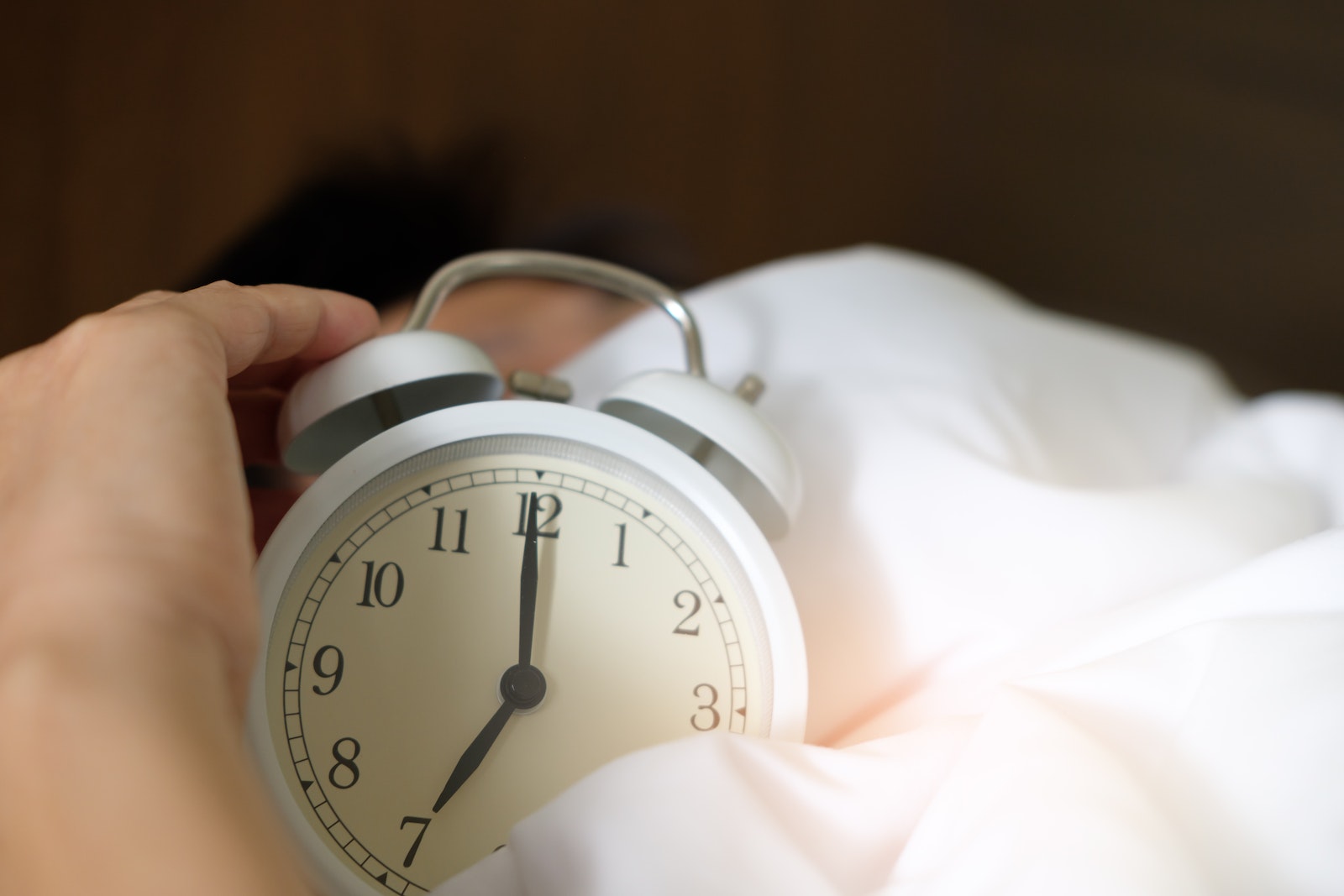In today’s fast-paced world, achieving a healthy lifestyle often feels like an elusive goal. Many of us struggle with weight management and hormonal imbalances, leading to various health challenges. Surprisingly, the solution to these issues might be as simple as getting a good night’s sleep. In our previous blog we wrote about 7 Powerful Benefits of Strength Training for Women’s Weight Loss. In this blog, we will delve into the interconnection between sleep, weight loss, and hormonal balance, highlighting the importance of optimal sleep hygiene in achieving overall health goals.
The Science Behind Sleep and Its Effect on Weight Loss and Hormonal Balance
 Understanding the significance of sleep on weight loss and hormonal balance requires exploring its science.
Understanding the significance of sleep on weight loss and hormonal balance requires exploring its science.
Sleep is an active process with distinct stages crucial for physical and mental well-being.
During sleep, the body experiences NREM and REM stages, facilitating restoration and memory consolidation.
Sleep deprivation disrupts hormonal regulation, impacting appetite-regulating hormones like leptin and ghrelin.
Insufficient sleep raises ghrelin (the hunger hormone) and reduces leptin (the satiety hormone), leading to overeating and weight gain.
Prioritizing quality sleep is essential for maintaining a healthy weight and hormonal equilibrium.
The Connection between Sleep, Weight Loss, and Hormonal Balance
 Understanding the specific hormones affected by sleep can shed light on the connection between sleep, weight loss, and hormonal balance.
Understanding the specific hormones affected by sleep can shed light on the connection between sleep, weight loss, and hormonal balance.
Leptin and ghrelin are not the only hormones influenced by sleep.
Cortisol, often referred to as the stress hormone, is also affected by sleep patterns.
Chronic sleep deprivation can lead to elevated cortisol levels, which may contribute to weight gain and difficulty losing weight.
On the other hand, melatonin, the hormone responsible for regulating sleep-wake cycles, also plays a vital role in hormonal balance.
Melatonin deficiency due to poor sleep quality can disrupt overall hormone production and secretion.
The Role of Sleep Hygiene in Weight Loss and Hormonal Balance
 Given the profound impact of sleep on weight loss and hormonal balance, it becomes imperative to prioritize sleep hygiene.
Given the profound impact of sleep on weight loss and hormonal balance, it becomes imperative to prioritize sleep hygiene.
Establishing healthy sleep habits and routines is essential for ensuring optimal sleep quality.
Creating a sleep-friendly environment involves eliminating distractions and implementing a calming bedtime routine.
Consistency in sleep patterns is equally crucial as it helps regulate the body’s internal clock, allowing for better sleep-wake cycles.
Impact of Sleep on Specific Hormones Related to Weight Loss
 The role of sleep-in hormonal balance extends beyond the previously mentioned hormones.
The role of sleep-in hormonal balance extends beyond the previously mentioned hormones.
Thyroid hormones, such as T3 and T4, are critical for metabolism regulation.
Sleep deprivation can lead to decreased thyroid hormone production, affecting metabolism and potentially leading to weight gain.
Furthermore, insulin, the hormone responsible for blood sugar regulation, is influenced by sleep.
Lack of sleep can impair insulin sensitivity, increasing the risk of insulin resistance and type 2 diabetes.
Growth hormone, which plays a key role in muscle building and fat burning, is predominantly secreted during deep sleep.
Poor sleep can hinder growth hormone production, hampering weight loss efforts.
Practical Tips to Improve Sleep and Enhance Weight Loss and Hormonal Balance
Improving the quality of sleep is a transformative journey that doesn’t have to feel like an uphill battle.
Making simple lifestyle adjustments can yield remarkable results in enhancing your sleep and overall well-being.
Developing a Personalized Sleep Schedule
 Our bodies have a natural internal clock, known as the circadian rhythm, which regulates sleep-wake cycles.
Our bodies have a natural internal clock, known as the circadian rhythm, which regulates sleep-wake cycles.
Creating a personalized sleep schedule involves going to bed and waking up at the same time each day, even on weekends.
This consistency helps align your body’s biological clock, promoting more restful and refreshing sleep.
Sleep-Friendly Dietary Practices
 What you eat and when you eat can significantly impact your sleep quality.
What you eat and when you eat can significantly impact your sleep quality.
Avoid consuming heavy meals, caffeine, and other stimulants close to bedtime.
Instead, opt for sleep-promoting foods like herbal teas, warm milk, or light snacks that contain tryptophan, an amino acid that aids in sleep regulation.
Consuming these foods can soothe your body and mind, making it easier to fall asleep and stay asleep throughout the night.
Incorporating Exercise for Improved Sleep and Weight Management
 Regular physical activity is not only crucial for weight management but also plays a vital role in promoting better sleep.
Regular physical activity is not only crucial for weight management but also plays a vital role in promoting better sleep.
Engaging in moderate aerobic exercises, such as walking, jogging, or cycling, can help reduce anxiety and stress levels, making it easier to unwind before bedtime.
However, it’s essential to avoid vigorous exercise close to bedtime, as it may lead to increased alertness and difficulty falling asleep.
Common Sleep Disorders and Their Influence on Weight and Hormonal Balance
 Sleep disorders, like sleep apnea and insomnia, complicate weight management and hormonal balance.
Sleep disorders, like sleep apnea and insomnia, complicate weight management and hormonal balance.
Sleep apnea, marked by interrupted breathing during sleep, links to weight gain and hormonal disruptions.
Meanwhile, insomnia, the inability to fall or stay asleep, impacts hormonal regulation and hampers weight loss efforts.
Special Considerations: Sleep, Weight Loss, and Hormonal Balance in Different Life Stages
Different life stages present unique challenges to sleep and hormonal balance:
- Sleep and Hormones in Adolescents and Young Adults: Puberty and changing sleep patterns can impact hormonal balance in adolescents and young adults.
- Pregnancy and Sleep’s Effect on Weight and Hormonal Changes: Hormonal fluctuations during pregnancy can affect sleep quality and weight management.
- Menopause and Sleep: Addressing Hormonal Shifts and Weight Management: Hormonal changes during menopause can disrupt sleep and lead to weight gain.
Lifestyle Changes for Enhanced Sleep and Hormonal Balance
Prioritizing sleep and hormonal balance require some lifestyle adjustments:
- Balancing Work-Life and Sleep: Set boundaries to ensure adequate rest despite a hectic schedule.
- Limiting Technology Use Before Bedtime: Blue light from screens can interfere with melatonin production, so it’s essential to avoid screens before sleep.
- Mindfulness and Relaxation Techniques for Better Sleep and Hormonal Health: Practices like meditation and deep breathing can promote relaxation and improve sleep.
Conclusion
In conclusion, sleep, weight loss, and hormonal balance are interconnected in a complex web.
Prioritizing optimal sleep hygiene is key to achieving overall health goals.
By understanding the science behind sleep and its effects on hormones, we can empower ourselves to make positive lifestyle changes.
Remember, a good night’s sleep isn’t just a luxury—it’s an essential component of a healthy and balanced life.
Empower yourself with knowledge and take action for optimal health, starting with a good night’s sleep!
Are you struggling to achieve a healthy lifestyle in today's fast-paced world, where weight management and hormonal imbalances seem like ongoing battles?
The solution to these challenges may be simpler than you think.
In this blog, we will delve into the interconnection between sleep, weight loss, and hormonal balance, highlighting the importance of optimal sleep hygiene in achieving overall health goals.
But that's just the beginning of the story.
If you're eager to unlock the secrets of natural weight loss and enhance your hormonal balance, we invite you to download our still free report.
Inside, you'll not only discover The Exact Method to Unlock Your Metabolism but also learn about the PrimaJust weight loss method—an approach that empowers you to shed 1-3 pounds per week effortlessly, with no need for dieting or exercise.
Don't miss this opportunity to take control of your health and well-being.
Click the link below and start your journey today.
[Source]Free Report
Sharing is caring! Share it with your friends.
Revolutionize your thinking with these essential related blog posts
-
Sleep and Weight Loss: Mastering Successful Weight Management
Weight management is a critical aspect of maintaining a healthy lifestyle. Many factors contribute to…
-
Exploring the Impact of Sleep Quality on Weight Loss
Sleep plays a crucial role in our overall health and well-being. It is not only…
-
Learn Why Is Sleep Important to Weight Loss and Well-being
Sleep is a fundamental aspect of our lives, crucial for our physical and mental well-being.…

















